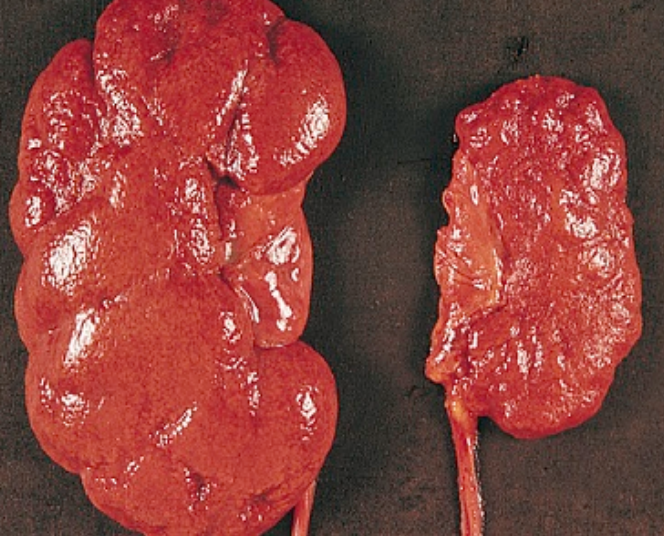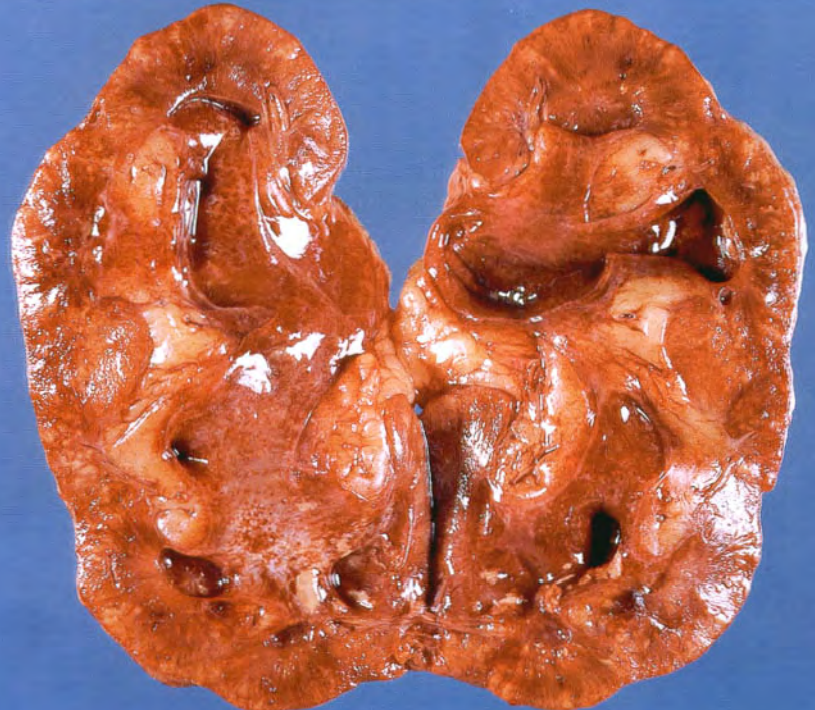Kidney Infection (Pyelonephritis)
Content of This Page
1- Introduction
2- Causes
3- Symptoms
4- Stages of Disease
5- Treatment
6- What Should You Avoid
Introduction
Kidney infection, medically known as pyelonephritis, is a type of urinary tract infection (UTI) that affects one or both kidneys. It typically begins as a lower UTI, such as a bladder infection, and then spreads upward to the kidneys. Pyelonephritis is a serious condition that can cause significant discomfort and may lead to complications if not treated promptly.

Causes
- Bacterial Infection: Often caused by Escherichia coli (E. coli), the same bacteria responsible for bladder infections.
- Urinary Tract Obstruction: Conditions like kidney stones or an enlarged prostate can block urine flow, allowing bacteria to grow.
- Recurrent UTIs: Untreated or poorly managed bladder infections can ascend to the kidneys.
- Weakened Immune System: Increases susceptibility to infections.
- Pregnancy: Changes in the urinary tract during pregnancy can increase risk.
Symptoms
- Fever and chills
- Flank pain (pain in the side or back, below the ribs)
- Painful urination
- Frequent urination
- Nausea and vomiting
- Cloudy, dark, or bloody urine
- Strong-smelling urine

Stages of The Disease
1. Acute Pyelonephritis
- Description: The initial stage of a kidney infection characterized by sudden onset of symptoms such as high fever, chills, flank pain, painful urination, and nausea.
- Treatment: Typically managed with oral or intravenous antibiotics. Pain relievers and increased fluid intake are also recommended.
2. Chronic Pyelonephritis
- Description: A long-term condition that develops from repeated or inadequately treated acute infections. It leads to persistent inflammation and potential scarring of the kidneys.
- Treatment: Requires long-term management, including antibiotics and addressing underlying issues like urinary tract obstructions or reflux. Regular monitoring is essential to manage kidney function and prevent further damage.
3. Recurrent Pyelonephritis
- Description: Occurs when a person has multiple episodes of acute pyelonephritis over time. It can be due to incomplete treatment, underlying health issues, or persistent sources of infection.
- Treatment: May involve long-term antibiotics to prevent recurrence, and investigation into underlying causes or contributing factors is necessary.
4. Complicated Pyelonephritis
- Description: Refers to pyelonephritis associated with complications such as kidney abscesses, severe obstruction, or chronic conditions like diabetes. It requires more intensive treatment and management.
- Treatment: May require hospitalization, intravenous antibiotics, drainage of abscesses, and surgical interventions if necessary.
5. Chronic Interstitial Nephritis
- Description: A severe form of chronic pyelonephritis where inflammation leads to long-term damage and scarring of the kidney tissue, potentially resulting in kidney failure.
- Treatment: Focuses on managing symptoms, controlling underlying conditions, and possibly preparing for dialysis or kidney transplant if kidney function is significantly impaired.
Treatment
- Antibiotics: Oral or intravenous antibiotics are prescribed to treat the infection.
- Pain Relievers: To manage pain and discomfort.
- Hydration: Drinking plenty of fluids helps flush bacteria from the urinary tract.
- Hospitalization: In severe cases or if oral antibiotics are not effective, hospitalization and intravenous antibiotics may be required.
What Should You Avoid
- Promptly Treat UTIs: To prevent them from spreading to the kidneys.
- Maintain Good Hydration: Drink plenty of fluids to help flush out bacteria.
- Good Hygiene: Wipe from front to back and avoid irritants that can lead to infections.
- Regular Medical Check-ups: Especially if you have conditions that increase your risk of kidney infections.